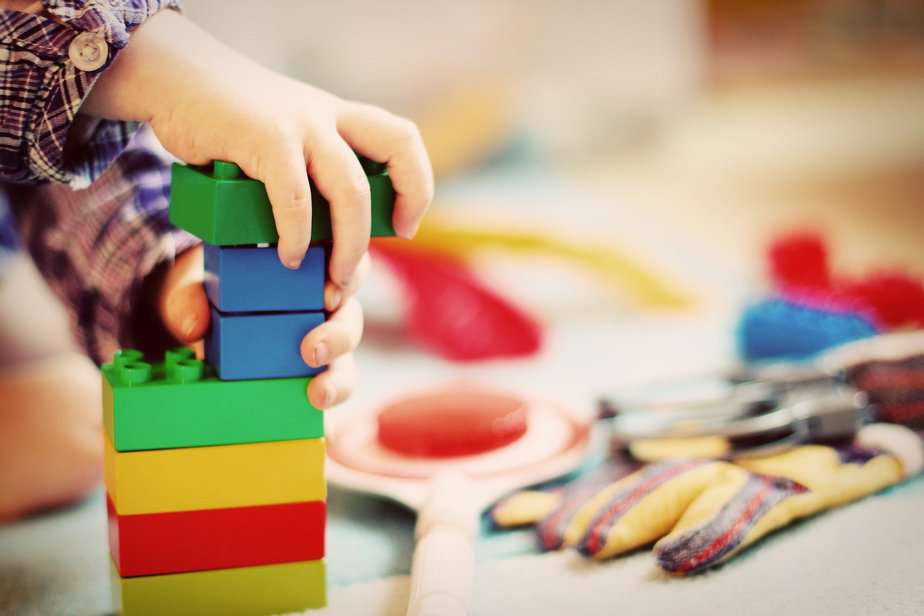Your child will rely on you for many things for the first few years of their life. As they grow, they’ll start learning to do things on their own. They won’t learn how to respond to real-world issues until they’re much older. However, it’s prudent that you teach them some life skills early enough in life.

Essential Things to Teach Your Child When They’re Still Young
Teaching them practical lessons will make them better in interacting with other people. They’ll also become wiser in handling issues pertaining to their own lives. If you’re wondering what more you can teach your kid beyond what they already know, keep reading for insights from a guest writer.

Image by free stock photos from www.picjumbo.com from Pixabay
Doing the Laundry
It’s so unfortunate that many teens join college without any clue how to clean their clothes. They’ve been brought up having people to clean up after them. Don’t let your child join that bandwagon. Begin teaching your child how to wash their clothes as early as when they hit six years.
If you have a top-loader washing machine, place a step stool nearby. Walk your child through the process, showing them how to measure the detergent and add it to the washer. Guide them on how to get the settings right and start the machine. Keep a step stool nearby for them to access the machine with ease. This is not the time to aim for perfection and as such, be open to accommodating mistakes.
Help Them Grow Their Decision-Making Skills
Every child should be equipped with decision-making skills as they will need them as they grow older. Some easy ways to grow this skill is to make them choose between two or more options. For example, let them choose the flavor of ice-cream they want. Allow them to pick their outfit for the family day out or to an event.
However, don’t leave the options too open. The idea here is to let them learn how to choose when they have limited options. When they reach elementary school, they can begin to learn about the consequences of good and bad decisions.
With each decision, it’s essential to help them weigh the pros and cons of their choices. Leave them to make the final choice and see how it goes.
Encourage Them to Use Their Creativity

Image by Esi Grünhagen from Pixabay
Unfortunately, we’re living in a world that suppresses children’s creativity. There’s a lot of mindless and not-so-useful screen time that takes the attention of children. Instead of being encouraged to use their creativity in making their life enjoyable, they stay stuck on programmed games and entertainment.
You should strive to set your child on a different course. Help them express their creative side, which is one of their inner workings. Don’t be afraid or feel intimidated to allow your child to bring out their creativity.
Let them spend more time outdoors playing in the backyard as opposed to lounging in the house. Buy them Lego blocks and let them build as many creative structures as they can. The more you sharpen their creative edge, the better they’ll be at solving problems later on.
Teach Them That Honesty is the Best Policy
Kids can be cheeky, and in all their innocence, they can pick up the habit of telling small white lies. If the habit isn’t arrested early enough, it can escalate into a significant problem later on. Lying can become addictive, and they might find themselves paying dearly when they’re older.
One way to teach your child the value of honesty is, to be honest, yourself regardless of the situation you’re in. Never let your child catch you telling a lie over the phone or to a family member to paint a good picture of the situation. Your child will easily take cues from what you say and do.
If you ever catch your child telling a lie, don’t overreact. Instead, find a way to make them tell the truth and make them understand why it’s wrong to lie. Teach them that being honest may not always be easy, especially if they’ve done something wrong. However, it’s always the best thing to do.
The Value of Experiences, not Things
Here, the idea is to teach your child to chase happiness and adventure as opposed to chasing material things. In a world full of materialism, it’s easy for your child to be consumed by the latest fashion items, gadgets, and current trends. Social media is accessible at an early age, and it can warp their perception of confidence and self-love.
Teach them to embrace happiness from what they experience and who they are, not what they have. If they know their self-worth at an early age, it’ll be easy for them to foster healthy relations with people. They’ll have overall contentment from creating memories and gaining knowledge.
How to Plant a seedling
Many schools teach preschoolers how to plant seeds in class, but this is as far as it goes. Take it upon yourself to teach your child how to transfer sprouts to the garden. Practical lessons include asking them to dig a hole slightly larger than the container holding the sprout.
Remove the plant from the container as they watch you and put it in the whole. Have your kid push the soil back into the hole and around the plant. Ask them to pat it down and ensure that the plant is well supported. Let them water the plant using a watering can or a gentle stream of water. By the age of 7, your child should do the entire transfer process by themselves.
How to Maintain Health and Hygiene
It’s never too early to teach your child how to wash after themselves. They should learn as much as they can about health and hygiene from a tender age. Let them form a habit of washing their hands before eating, after playing, or after using the toilet.
Another crucial part of their hygiene is proper oral care. Apart from brushing their teeth, they should learn the importance of regular dental checkup. Your child’s Pediatric Dentist can come in handy to help you with this. Your child will understand from a professional’s perspective why it’s essential to have their teeth checked often.
Teach them to eat healthy foods and avoid too much candy and soft drinks. Please encourage them to eat their vegetables by inviting them to help you with the preparation. By establishing these healthy habits over time, your child will be in a better position to take care of their health and hygiene.
Teach Them the Importance of Work
Your children shouldn’t grow up thinking they’re entitled to having everything they want. It’s wise to teach them that hard work pays and it’s the way to earn the things they desire. Explain to them that it’s only by putting some hours into work (long or short) that you’re able to meet their needs.
The value of hard work and responsibility should be instilled in children from a young age. Start by giving them tasks around the house and compensating them for completing them on time and in the right way.
A good place to start is with clearing the table after their meals or spreading their bed throughout the week without missing a day. Don’t let them grow up being lazy, hoping that they’ll learn how to work hard when they get a job. That day might never come.
Teach Them Love and How to Share

Image by Pexels from Pixabay
No one wants a stingy person around them. Generosity isn’t just about material things and what we can see, but also about spreading love and compassion. Children love naturally and give their affection generously. However, for these sentiments to last, they must be reciprocated. Unfortunately, amid busy life schedules, the words “I love you” are probably the ones that a child is least likely to hear.
Learn and make it a habit to demonstrate love to your child and the people in your life. Hug your spouse in front of your children. Talk to the kids about how much you love your family members. Most importantly, always take a moment to express some love to the children.
There are many ways to demonstrate that you love your children. However, spending quality time with them, making fun, and playing games with them beats them all. Give them random hugs or pack a note in their school bag. Whatever it takes, let your child know that you love them. The love and affection will spill over from them to others.
The Value of Respect
Another important lesson your child should learn is how to respect themselves. Teach them not to hurt themselves when they’re upset or don’t get what they want. They should learn to live with the consequences of their decisions and not condemn themselves forever. Whatever they wouldn’t want other people to do to them, they shouldn’t do to themselves.
Respect also extends to other people. Let them learn that everyone should be respected, regardless of their background, age, gender, race, or status.
Take Away
Bringing up a child is a beautiful life journey, but it’s challenging. Your child looks up to you to teach them a lot of things and to mold them into good citizens. Ensure you’re as involved as you can in your child’s life to instill as many life skills as you can. They’ll thank you one day when they’re older.